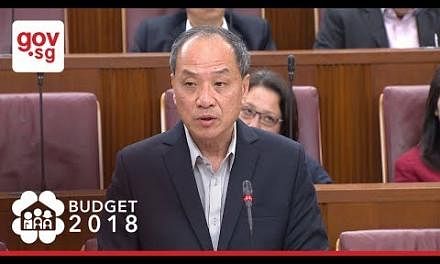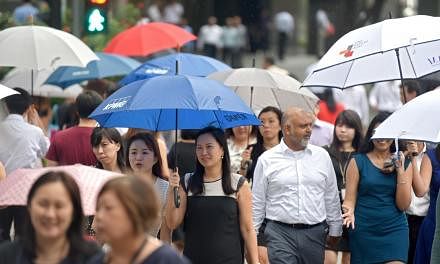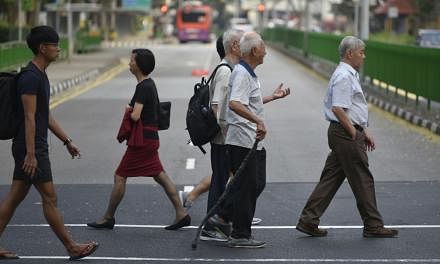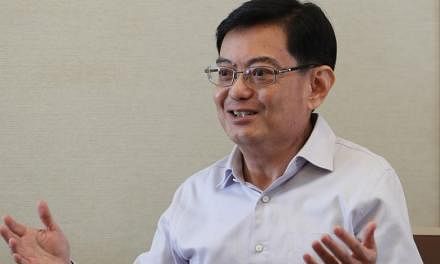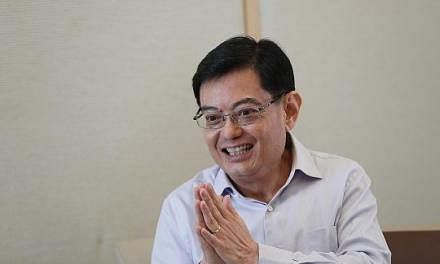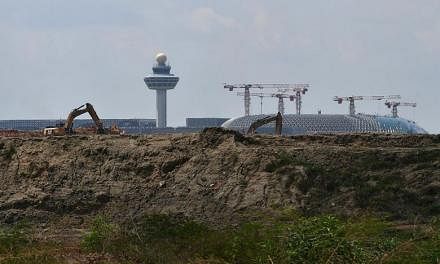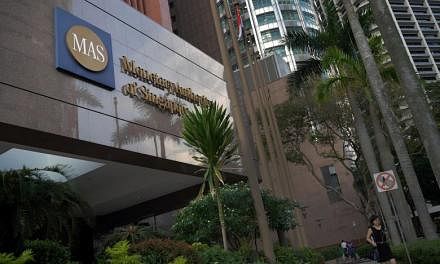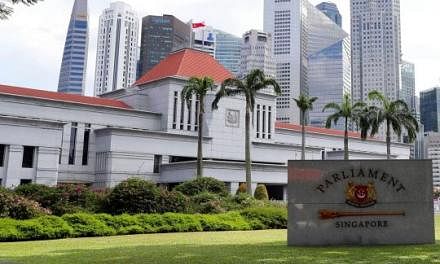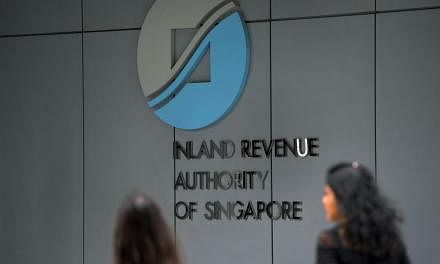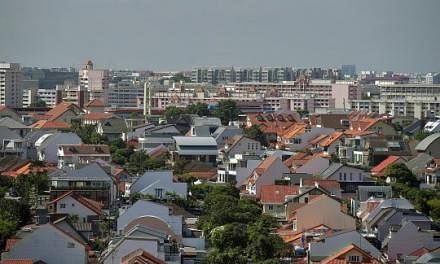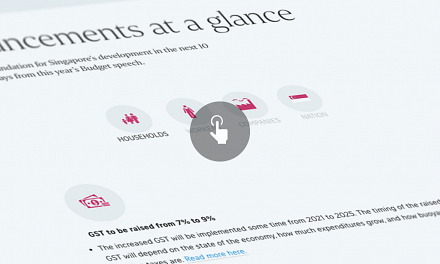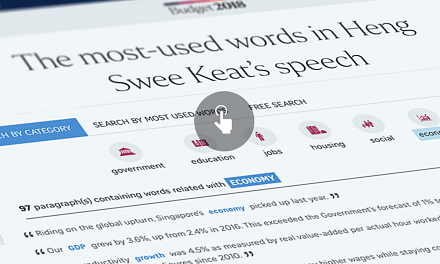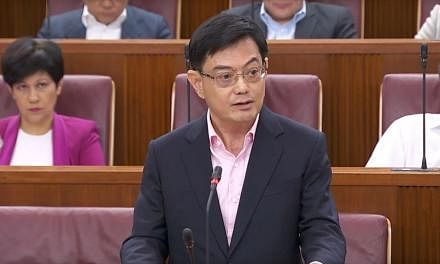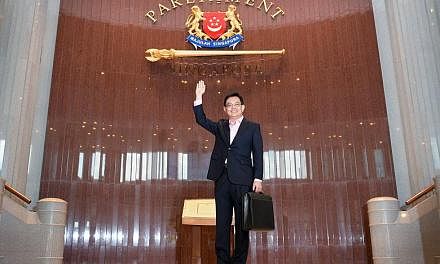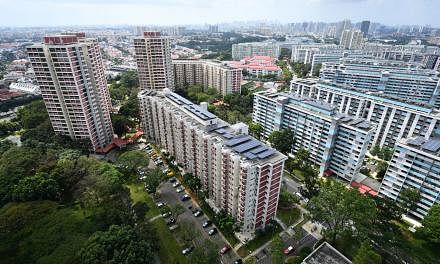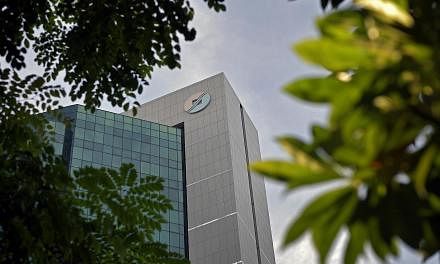SINGAPORE - Workers' Party (WP) chief Low Thia Khiang has called on the Government to refrain from allowing the impending goods and services tax hike to become an unnecessary distraction from the key focus of the Budget, which he lauds as a forward-looking one.
The Budget, he said, accurately identifies the shifting economic weight to Asia and the emergence of new technologies as major international trends that "would change the world for our children".
But what is unfortunate is that the Budget is "looking forward too hastily" for future revenue streams by prematurely announcing the GST hike, said Mr Low, speaking at his last Budget debate as WP chief before he hands over to a new secretary-general when the WP holds its leadership elections in April.
He said: "This is a real distraction causing the Government to lose its focus in getting buy-in for the vision because it has to explain the future GST hike instead.
"Do not let this opportunity to lead Singapore with this vision go to waste."
Mr Low focused the bulk of his 11-minute speech, delivered in English, on the rise of China and how Singapore needs to transform in response.
Over the past 50 years, Singapore thrived by making itself useful to global capitalism, and especially by correctly identifying future trends before others do - for instance the rise of China, which allowed Singapore to position itself among the first to share its economic know-how with its giant neighbour in the north, he said.
"But I'm afraid this advantage is now irrelevant," said Mr Low, pointing to how China is now leading the pack.
Singapore has to see how it can make itself useful again, by transforming its economy, culture, human capital, diplomatic relationships and interpersonal friendships between leaders and citizens on both sides, he said.
This, even as it grapples with a new challenge: The "kinship advantage" between Chinese Singaporeans and the Chinese in China is also fading fast as China modernises.
Meanwhile, some Chinese-educated Singaporeans feel that "they are finally free of the feeling of inferiority", and are excited that the "so-called sick man of Asia" has now fully arose.
Yet, this comes not without unease, noted Mr Low, himself a Chinese-educated graduate of the former Nanyang University.
He warned that China's rise as a superpower could possibly fuel its own imperialist ambitions in the region.
"This is not far-fetched if you consider how the Japanese did just that in the first half of the 20th century," he said.
"Will China revive its old tributary empire and use sharp power to compel small states to submit to its will and pay the equivalent of tribute today? How China behaves will have serious implications on small states in the region like Singapore in the near future."
Mr Low said he is "personally wary" of the political ambitions of China as it emerges as a global superpower.
Singapore should thus keep the political scenario of an imperialist China in mind while it focuses on economic opportunities brought about by China's rise.
"I'm worried that if we are not careful, and if we fail in our economic strategy to become a global Asia node, we will become the pawn on the chessboard of great power games in South-east Asia."
On how Singaporeans can succeed in grasping the economic opportunities in China, he said that this includes not just the learning of Mandarin - a suggestion that has been mooted by Nominated MP Azmoon Ahmad and Mr Lee Yi Shyan (East Coast GRC) - but also encouraging more to pick up dialects.
"If one would like to connect better to the Chinese, not just rationally but also affectionately, the language to use is local dialect."
That said, he added, Singaporeans must bear in mind that it is first and foremost a multiracial and multilingual society.
"My view is that Singapore is politically at heart a South-east Asian nation defined by commercial trade, tropical hospitality, openness of the sea and diversity of cultures," said Mr Low.
"I believe that the ethnic politics and international frictions in our region will subside in time and Asean will soon become a more integrated community to protect our own interest against external dominance."

